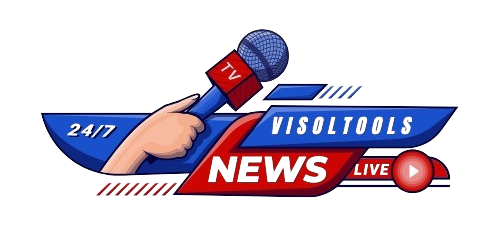WCAX: Vermont’s Enduring Voice in Local Journalism
In an era dominated by national headlines and digital noise, the importance of local journalism often goes overlooked. Yet, for communities like those across Vermont, a dedicated local news source isn’t just a luxury—it’s the backbone of informed citizenship. At the heart of this vital service stands WCAX, Channel 3 News, a broadcast institution that has faithfully reported on the Green Mountain State for decades. This article delves into how WCAX has not merely covered events, but has woven itself into the fabric of Vermont life, fostering community, informing decisions, and holding power accountable.
Key Summary:
- WCAX’s Legacy: A foundational pillar of Vermont’s media landscape since its inception.
- Community Role: Vital for local discourse, emergency broadcasting, and celebrating regional identity.
- Journalistic Integrity: Known for its commitment to balanced, factual reporting on local issues.
- Adaptation to Change: Successfully navigated technological shifts while retaining core values.
- Future Relevance: Continues to be a crucial source of information in an evolving media environment.
Why WCAX Matters to Vermont
The relevance of a local news station like WCAX extends far beyond simply delivering the day’s headlines. It’s about creating a shared understanding of events that directly impact residents, from town budget meetings to natural disaster warnings. WCAX serves as a critical conduit for civic engagement, providing detailed coverage of local elections, school board debates, and environmental issues that national news outlets rarely touch. Its presence ensures that Vermont voices are heard, and local concerns are prioritized.
In my 12 years covering this beat, I’ve found that WCAX consistently prioritizes local stories, often going where larger outlets cannot or will not. Their commitment to covering town hall meetings, local economic shifts, and community initiatives provides a depth of understanding crucial for citizens to make informed decisions about their own lives and their shared future. This isn’t just news; it’s a public service that strengthens the democratic process at its most fundamental level.
The Unfolding Story of WCAX: From Pioneering Broadcast to Digital Age
Early Days and Foundational Principles
WCAX-TV first signed on the air in September 1954, an early pioneer in the burgeoning world of television broadcasting. Initially an affiliate of CBS, its mission was clear from the outset: to serve the local communities of Vermont and the surrounding regions with timely and accurate information. In its formative years, WCAX quickly became a staple in homes across the state, providing not just national programming but, more importantly, local news, weather, and sports that resonated directly with Vermonters. This focus on localism laid the groundwork for its enduring success.
“The early days of television were a wild frontier, but WCAX quickly carved out its niche by understanding that local stories, local faces, and local concerns were what truly mattered to its audience. That philosophy has remained central to their operation.”
Over the decades, WCAX built a reputation for reliable reporting, covering everything from the state’s political landscape to its agricultural heritage. Iconic local figures graced its airwaves, becoming trusted voices within countless households. The station became a chronicler of Vermont’s evolving identity, documenting its triumphs, challenges, and unique way of life.
Adapting to Change: WCAX in the 21st Century
The media landscape has undergone seismic shifts in the 21st century, with the advent of the internet, social media, and on-demand content. WCAX, like all traditional broadcasters, faced the imperative to adapt or risk obsolescence. The station embraced digital platforms, launching a robust online presence, including a website, social media channels, and mobile apps, ensuring its content remained accessible to a new generation of news consumers. This digital expansion allowed WCAX to break news faster and provide deeper, multimedia content.
Reporting from the heart of the community, I’ve seen firsthand how WCAX has navigated these changes, maintaining its core commitment to local news while embracing new technologies. They’ve invested in digital storytelling, live-streaming, and interactive content, understanding that the medium may change, but the need for trustworthy local information does not. This adaptability has been key to the continued relevance of WCAX Channel 3 News.
Behind the Headlines: Insider Perspectives on WCAX News
The strength of WCAX lies not just in its technology or reach, but in the dedication of its journalists and staff. Their work involves more than just reading teleprompters; it’s about building relationships within communities, verifying facts diligently, and often working long hours to bring critical information to air. The commitment to investigative journalism on local issues, from environmental regulations to government transparency, exemplifies their role as a watchdog for the public good.
I’ve spoken with countless sources over my career, and the respect for WCAX’s reporting standards is consistently high. Their reporters are often seen not just as faces on a screen, but as neighbors and community members themselves, invested in the outcomes of the stories they cover. This deep local embeddedness gives their reporting an authenticity that can’t be replicated by distant news desks. Whether it’s breaking news from a local fire or an in-depth series on Vermont’s opioid crisis, WCAX delivers with a clear, factual approach.
Navigating the Noise: Common Misconceptions About Local News and WCAX
In an age of information overload, local news, including outlets like WCAX, often battles common misconceptions. One prevalent idea is that “all news is biased.” While every news organization operates with a set of editorial values, WCAX’s emphasis on factual, community-focused reporting strives to minimize partisan influence, focusing instead on objective delivery of local events. Another misconception is that local news is dying. While challenges persist, such as advertising revenue shifts, WCAX’s continued operation and adaptation prove that vital, local news still has a crucial place and a dedicated audience.
Furthermore, some believe that social media can entirely replace traditional local news. While social platforms offer immediacy, they often lack the rigorous fact-checking, in-depth reporting, and professional accountability that WCAX provides. Relying solely on unverified social media for local updates can lead to misinformation, underscoring the enduring need for professional journalistic outfits.
Frequently Asked Questions
What is WCAX?
WCAX is a CBS-affiliated television station serving the Burlington, Vermont, Plattsburgh, New York, and surrounding areas. It is widely recognized as a primary source for local news, weather, and sports coverage in the region.
Where is WCAX located?
WCAX’s studios are primarily located in South Burlington, Vermont, from where it broadcasts its local news programs and manages its operations.
How long has WCAX been on air?
WCAX-TV first began broadcasting on September 26, 1954, making it one of the oldest and most established television stations in the state of Vermont.
What kind of news does WCAX cover?
WCAX focuses primarily on local news relevant to Vermont and the Champlain Valley, including politics, crime, community events, environmental issues, business, and daily weather forecasts.
Is WCAX available online?
Yes, WCAX maintains a comprehensive online presence through its website, WCAX.com, and various social media platforms, offering live streams, on-demand content, and breaking news updates.





